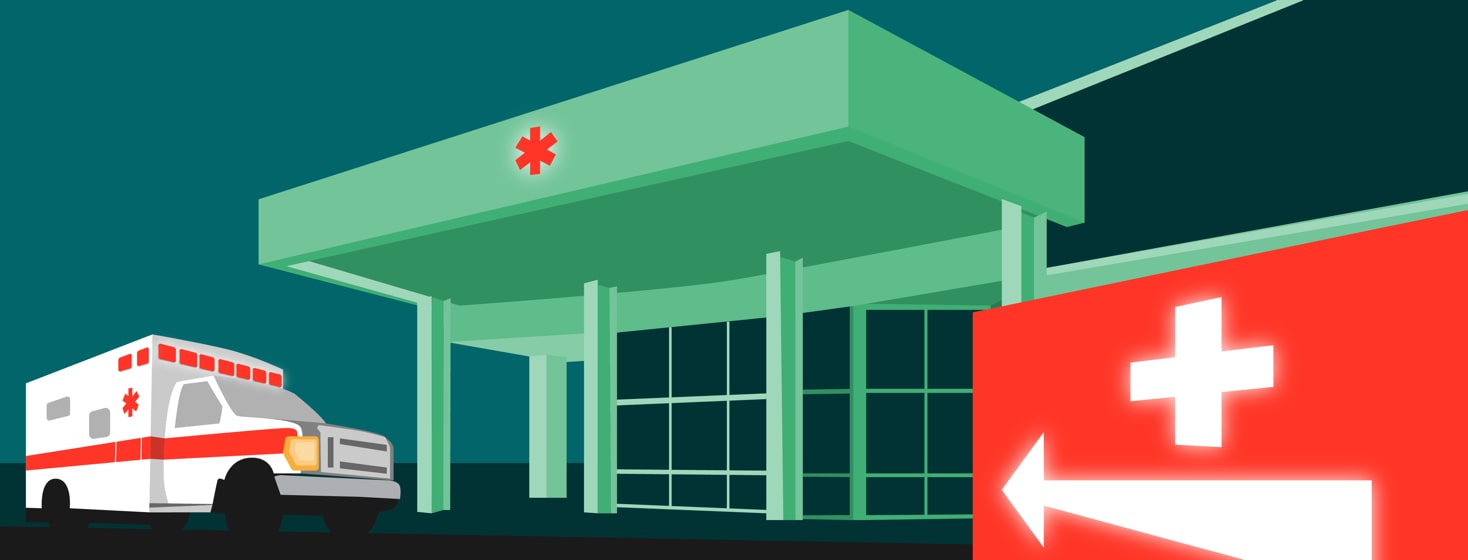What Is It Like to Visit the ER With a Pain Crisis?
People living with sickle cell disease (SCD) often experience severe pain and sometimes need treatment in the emergency room.
In our 2020 Sickle Cell Disease In America survey, we explored how interactions in the ER impact people living with SCD. Results from the survey show that nearly 90 percent of respondents visited an urgent care facility or emergency room within the past year. Many community members said they felt judged, stigmatized, and unheard in the ER.
Following the survey, we turned to community members on our Facebook page and asked them to also share details about their ER experiences. We highlight some of their insights below, along with more results from our survey.
ER visits are unwanted, but often necessary
“It is a visit to a place I would rather not be! I go with reluctance! I have exhausted everything I had and could come up with at home, and now I have to go because this crisis just won't let go.” – SCD community member
Even though many community members felt stigmatized by ER nurses, staff, and doctors, seeking ER treatment is unavoidable in many cases. An overwhelming 93 percent of survey respondents said they have pain/chronic pain and acute pain crises as a result of SCD. Nearly 90 percent have visited the ER in the past year due to SCD.
40 percent of community members have 6 or more pain crises a year
25 percent visited the ER 5 or more times in one year
ER staff does not take pain seriously
“Agonizing to wait with that amount of pain and sometimes shortness of breath. Fearful to sometimes wonder will this crisis lead to more health problems or fatality? Frustrating to deal with staff that don’t take it seriously.” – SCD community member
Results from our survey show that many community members feel interactions with ER staff have room for improvement. Respondents said their pain is not taken seriously by people working in the ER. Another common complaint was ER staff are ignorant of or misinformed about the disease.
People with SCD avoid the ER to avoid judgment
“It sucks. You never know if you will have a good experience or if you have to fight to get the care you need.” – Survey respondent living with SCD
Survey results show that community members in crisis feel they do not get the treatment they need because of ER staff attitudes. In fact, 65 percent of respondents said they have felt judged or stigmatized by ER staff. Respondents shared that they have been treated rudely and given a hard time by ER staff while trying to seek care.
43 percent avoid going to the ER because they worry people will judge them
“A doctor judged me during a hospitalization. He stated I wasn’t in that much pain to be using Dilaudid. He also stated I was drug seeking because a sickle cell crisis can be managed with Motrin. His statement is not true!” – Survey respondent living with SCD
Many community members believe ER staff views them as drug seekers. This makes access to care challenging and frustrating.
Seeking treatment in the ER takes too long
“The thought of going to the ER alone makes me sicker. The ER always frustrates my pain. They take a long time to administer important medications. If I had it my way, I'll always get treated at home.” – SCD community member
“How much longer will I have to stay? What will they do this time?” – Caretaker for someone living with SCD
A common complaint about ER treatment was wait time. Respondents said waiting in pain was agonizing. Never knowing how long their visit would take was also frustrating.
Editor's note: The 2021 Sickle Cell Disease In America survey was conducted online from October 2020 through February 2021. The survey was completed by 132 people.

Join the conversation